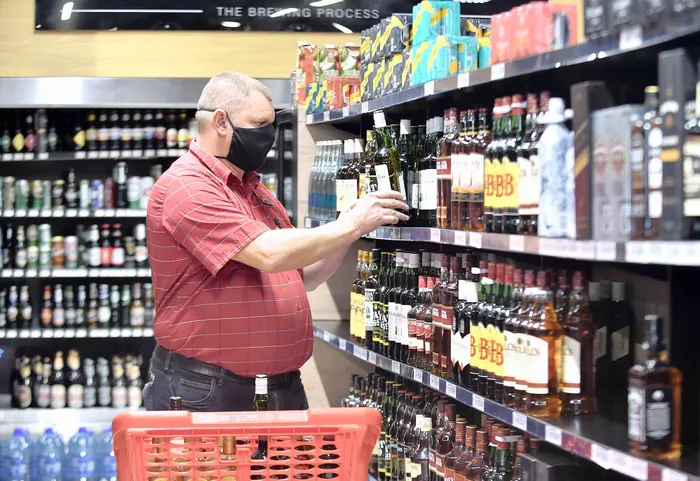SA liquor industry out of panic writes to National Coronavirus Command Council over alcohol ban

SA Liquor Brandowners’ Association spokesperson Sibani Mngadi said that the fourth wave did not warrant destructive and unscientific restrictions. Picture: Thobile Mathonsi/African News Agency(ANA)
Cape Town - The Liquor Association has, out of panic, written to the National Coronavirus Command Council (NCCC) expressing its concern over the rise in Covid-19 infections, and called on the government to apply a science-based approach and not rush into the kneejerk response of past restrictions.
SA Liquor Brandowners’ Association (Salba) spokesperson Sibani Mngadi said that from the available evidence, statistics and front-line health-care workers, the fourth wave did not warrant destructive and unscientific restrictions that would include the limiting or outright banning of alcohol sales.
Instead, the government should focus on the vaccine drive and apply a common-sense approach to large, unsafe social gatherings, Mngadi said.
The government had yet to confirm that a task team to investigate implementing a vaccine mandate had been established, and Salba would like to know what its time lines and terms of reference were.
“Under the National Disaster Management Act, the decision on such a mandate is the preserve of the government,” he said.
Instead of venturing into economic restrictions, Mngadi said, it was time for the ministerial advisory committee to provide health-specific advice on how to maximise the impact of vaccines as the main pharmaceutical intervention available.
“This should be the government’s focus.”
He said there was no medical evidence that the current fourth wave had led to increased hospital admissions, especially in ICU wards.
There was thus no justification for any alcohol sales restrictions as argued in the past four prohibitions.
The association's chief executive, Kurt Moore, urged the government to approach things differently, as the country simply could not afford another set of economic restrictions.
“The increase or decline in infections is not linked to the availability of alcohol,” Moore said.
“What another ban would do is simply magnify the problem of alcohol premises being the targets of robbery.
“Warehouses and liquor outlets have become the target of organised gangs since the discussion about other potential restrictions,” he said.
He added that any restriction would devastate the alcohol industry and its enormous supply chain and swell the ranks of the unemployed, leaving many families and communities destitute.
Economic Growth Mayco member James Vos said: “We don’t need more restrictions. We need more vaccination roll-outs. Businesses simply can’t afford more restrictions.”
Southern African Alcohol Policy Alliance in SA (Saapa SA) director Maurice Smithers said that as everyone knew, blanket bans had had devastating economic consequences, resulting in business closures, job losses and emotional trauma for the thousands of affected entrepreneurs and workers.
Smithers said such bans could be avoided if alternative targeted measures were adopted to prevent the infection rate spiralling out of control.
“More people must get vaccinated, but gatherings must be the main focus when the government considers its options,” he said.
Smithers said history had shown that gatherings posed a significant risk, and should be restricted sufficiently to minimise their contribution to the spread of the virus.
“This means smaller gatherings, limiting them to private homes as far as possible, an extended curfew, and restricting or prohibiting on-consumption alcohol sales, while allowing off-consumption trading to continue.
“This could include permitting on-consumption outlets to sell off-consumption, as happened in June 2020,” Smithers said.
sisonke.mlamla@inl.co.za